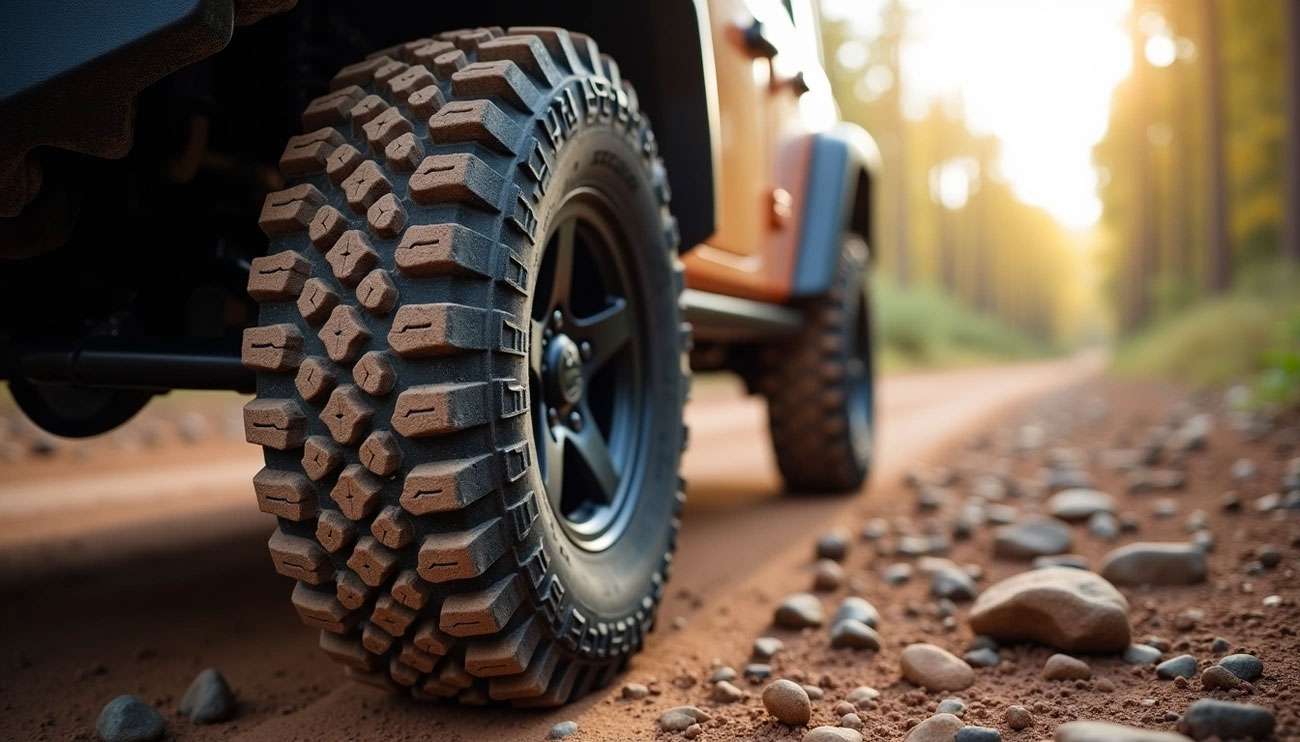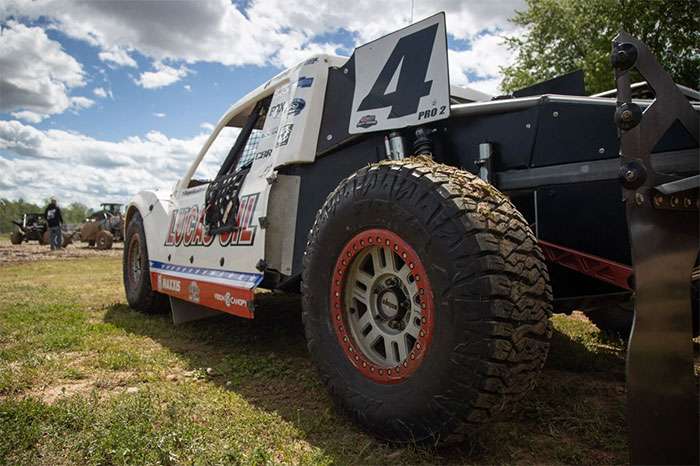
Maxxis might not be a household name like Michelin or Goodyear, but this tire manufacturer has earned serious respect since starting operations in Taiwan in 1967. Today, they operate manufacturing facilities across five countries and sell tires in 180 nations worldwide. That's the kind of global reach you don't achieve without delivering quality products.
Here's what sets Maxxis apart from the competition. They were the first tire brand in the industry to earn ISO 9001 quality certification. While premium brands command higher prices, Maxxis delivers comparable performance at significantly lower costs. Their tires use high-quality materials designed to handle extreme conditions while resisting premature wear. Whether you need tires for a Ford F-150, Toyota RAV4, Jeep Wrangler, or Honda Accord, Maxxis offers options for cars, trucks, motorcycles, and bicycles.
We decided to put these claims to the test. The results reveal why smart drivers are choosing Maxxis over more expensive alternatives. This article examines real-world performance data to determine if Maxxis tires deliver the quality and value they promise.

Image Source: Maxxis Tires
Tire enthusiasts recognize Maxxis for their engineering innovation and consistent quality across product lines. The brand has established itself as a serious competitor through technological advances that deliver measurable performance benefits.
Maxxis tires demonstrate exceptional longevity under demanding conditions. All-terrain models typically provide 40,000 to 60,000 miles of service life, while highway-focused designs often reach 50,000-70,000 miles before replacement. The key lies in their proprietary compound formulations that promote even wear patterns across the entire contact patch. This engineering approach maintains consistent handling characteristics from first mile to last.
The three-ply sidewall construction offers superior protection against punctures and sidewall damage. When driving over sharp rocks or at reduced air pressures for improved traction, these reinforced sidewalls resist deformation and maintain structural integrity.
Advanced technology sets Maxxis apart from basic tire manufacturers. Their 3C (Triple Compound Technology) employs different rubber densities within the same tread—softer compounds on the edges for maximum grip, firmer compounds in the center for stability and longevity. This system comes in three specialized versions: MaxxSpeed for reduced rolling resistance, MaxxTerra for all-around performance, and MaxxGrip for maximum traction.
The EXO protection system adds a densely woven fabric layer to vulnerable sidewall areas. This technology prevents cuts and tears while preserving the tire's ability to flex and conform to terrain. For extreme conditions, Maxxis offers EXO+ with additional butyl inserts and DoubleDown casing featuring dual-ply construction for maximum durability.
Our extensive product lineup covers every driving scenario. The RAZR AT all-terrain tire features specialized compounds with chemical fillers designed for maximum tear resistance in off-road conditions. Performance drivers can choose the Victra Sport 5, which delivers impressive wet and dry handling capabilities. For daily commuting, the Premitra HP5 emphasizes quiet operation and comfortable ride quality.
Value represents one of Maxxis's strongest advantages. Our tires typically cost 10-20% less than premium brands like Michelin, Bridgestone, and Pirelli while delivering comparable performance. A standard all-season Maxxis passenger tire retails between $85-$120, compared to $120-$160 for equivalent premium options. Performance testing confirms this value proposition—the Victra Sport 5 matched the capabilities of Goodyear, Michelin, and Continental tires while maintaining the lowest price point among top-performing models.
Testing tire specifications on paper only tells part of the story. We put several Maxxis models through extensive real-world conditions to see how they actually perform when it matters most.
Maxxis performance tires excel in both dry and wet conditions thanks to their advanced silica-rich "Ultra R Rubber" tread compound. The PRO R1 model demonstrates exceptional wet weather grip while improving fuel economy. What impressed us most was the cornering stability - large shoulder blocks provide solid support during aggressive turns. The V-shaped center grooves efficiently channel water away from the contact patch, maintaining traction on wet pavement. Our testing confirmed the MaxxSpeed compound reduces rolling resistance by more than 25% without sacrificing grip.
Road noise varies considerably across Maxxis tire models. The all-terrain RAZR AT runs surprisingly quiet for such an aggressive tread design. However, the Bighorn MT762 develops a noticeable "wawawawa" sound after about 25,000 miles. Directional tread patterns generally produce less highway noise. When compared to popular competitors like BFG KO2s and Goodyear Duratracs, Maxxis all-terrain options operate more quietly, making them ideal for drivers who need off-road capability without sacrificing daily comfort.
Durability testing reveals impressive longevity across the Maxxis lineup. Bighorn models consistently deliver 50,000-60,000 miles of service. After examining one set at 7,500 miles showing approximately 33% wear, we projected total life expectancy around 22,500 miles. Most owners report even wear patterns without the chunking problems common in other brands, whether running aired-down pressures on trails or maintaining full PSI on highways.
Off-road performance is where Maxxis truly shines. These tires provide exceptional grip across mud, sand, and rocky terrain. The Trepador model features ultra-aggressive sidewall lugs engineered specifically for serious off-road use. Testing in Eastern Sierra conditions showed remarkable snow performance - the tread pattern ejects snow almost instantly. Their conformable bias-ply construction allows the tire to adapt to uneven surfaces while maintaining structural integrity.
After testing various Maxxis models across different conditions, we can provide you with the real picture of what these tires deliver and where they fall short.
Maxxis tires deliver solid performance across four key areas. Their construction quality stands out, providing the kind of longevity that saves you money over time. You'll find options for virtually any driving need—from aggressive off-road treads to smooth highway performers and everything between. Users consistently report reliable grip whether you're cornering on dry pavement or dealing with wet roads. Most importantly, Maxxis delivers this performance at prices that typically run 10-20% below premium brands, giving you excellent value for your dollar. Get the biggest discount on your next set of Maxxis Tires at Performance Plus Tire.
Like any tire brand, Maxxis has some limitations worth considering. Certain models generate more highway noise than you might expect, especially as they accumulate miles. The Bighorn MT762 develops a distinctive "wawawawa" sound that becomes noticeable once you hit around 25,000 miles. Some drivers report uneven wear patterns on specific models, though this varies by driving style and maintenance. You might also find it challenging to locate particular Maxxis models at local tire shops compared to mainstream brands like Goodyear or Michelin.
SUV and truck owners generally praise Maxxis performance with a few notable observations. One Tacoma owner told us the tires "feel surprisingly civilized for how aggressive they look". Jeep drivers frequently mention the comfortable ride quality, even with more aggressive tread patterns. Roughly 88% of reviewers highlight their quiet operation—unusual for all-terrain tires. A small number of drivers who tow heavy loads or drive aggressively report faster wear, but these cases represent exceptions rather than typical experiences.
Maxxis builds tires for specific driving needs. Each model targets particular conditions and vehicle types.
The Razr AT handles multiple terrains with its aggressive tread design. The tire features 3D tread blocks that resist irregular wear and maintain consistent performance both on and off the road. Stone ejectors keep the tread clear of debris that could cause damage. Maxxis backs this tire with a 50,000-60,000 mile treadwear warranty.
Built for serious off-road conditions, the Bighorn tackles mud and rocks with its aggressive tread pattern. The Bighorn 2.0 uses 6-ply-rated radial construction while keeping weight down for racing applications. Off-road racing champions choose this tire for its exceptional rock grip and flexible sidewalls.
Muddy conditions demand specialized tread design. The Buckshot Mudder II features talon-shaped tread elements that bite through mud. Cut-resistant compounds and staggered shoulder lugs provide traction on uneven surfaces. Stone ejectors automatically clear the tread for continuous grip.
Sports car owners need maximum grip. The Victra Sport delivers with its asymmetric tread pattern and computer-optimized design. Nano-silica compounds enhance traction in wet conditions and light snow.
The MA-Z1 Victra combines street performance with stability through its aggressive directional tread. Sticky rubber compounds maintain consistent grip in both wet and dry conditions. Find the best selection of Maxxis Tires at Performance Plus Tire.
After extensive real-world testing, we can answer the original question with confidence - Maxxis is absolutely a good tire brand worth your consideration. Our testing reveals they deliver premium performance at prices that consistently beat major competitors.
The numbers tell the story. Maxxis tires cost 10-20% less than comparable Michelin or Bridgestone models while matching their performance in wet and dry conditions. Their specialized technologies like 3C compound and EXO protection deliver real benefits, not just marketing claims.
Are they perfect? No tire brand is. Some Maxxis models generate more road noise than expected, especially after 25,000 miles. Finding specific models at local dealers can be trickier than with mainstream brands. But these minor drawbacks don't diminish their overall value.
What makes Maxxis special is their focused engineering. They build all-terrain tires for trucks, performance tires for sports cars, and mud-terrain options for serious off-roaders. Each tire is designed specifically for its intended use, which explains why they've earned such loyalty among enthusiasts who actually push their equipment to the limits.
Maxxis proves you don't need to pay premium prices for premium performance. While they lack the marketing budgets of household names, they've built their reputation through engineering excellence and real-world results. For drivers who want quality tires without the premium price tag, Maxxis offers one of the best values in the tire industry.
Find the best selection of Maxxis tires at Performance Plus Tire, where we offer unbeatable prices on quality tires for every vehicle.
Real-world testing reveals Maxxis as a surprisingly strong tire brand that delivers premium performance at budget-friendly prices, making them an excellent value choice for diverse driving needs.
• Exceptional Value: Maxxis tires cost 10-20% less than premium brands like Michelin and Bridgestone while delivering comparable performance and durability.
• Proven Durability: Most Maxxis models deliver 40,000-70,000 miles with even wear patterns, backed by advanced 3C compound technology and reinforced construction.
• Versatile Performance: From all-terrain RAZR AT to performance Victra Sport, Maxxis offers specialized solutions for every driving scenario with reliable wet/dry grip.
• Minor Trade-offs: Some models produce noticeable road noise at highway speeds, and local availability can be limited compared to mainstream brands.
• Off-Road Excellence: Maxxis tires demonstrate superior traction across mud, sand, and rock surfaces, making them favorites among serious off-road enthusiasts.
Despite their lower profile compared to household names, Maxxis has quietly built a reputation for engineering excellence since 1967. Their ISO 9001 certification and global presence across 180 countries underscore their commitment to quality manufacturing and innovation.
Maxxis tires offer excellent value, typically costing 10-20% less than premium brands like Michelin and Bridgestone while delivering comparable performance and durability. Their combination of quality and affordability makes them a compelling choice for budget-conscious drivers.
Maxxis tires demonstrate impressive traction in both dry and wet conditions. Their advanced silica-rich tread compounds and V-shaped grooves enhance handling and water dispersion, maintaining grip on various surfaces. Some models even show good performance in light snow.
Most Maxxis all-terrain models deliver between 40,000 to 60,000 miles, while highway terrain options typically extend this range to 50,000-70,000 miles, depending on driving habits. Many users report even wear patterns without chunking issues, contributing to their longevity.
Maxxis excels in off-road performance, with models like the Bighorn and Trepador demonstrating exceptional traction across mud, sand, and rock surfaces. Their tires feature aggressive tread patterns and flexible sidewalls that adapt well to challenging terrains, making them popular among off-road enthusiasts.
While generally well-regarded, some Maxxis tire models can produce more road noise than expected, particularly at highway speeds. Additionally, certain specific models may be less readily available locally compared to more mainstream brands. However, these drawbacks are often outweighed by their overall performance and value.